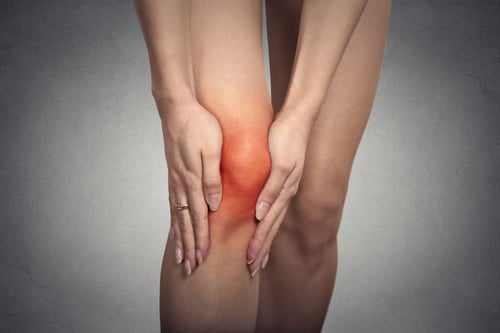.jpg?width=900&name=Kaitlin%20Tabula%2c%20D.O.%20(1).jpg)
It’s safe to say we all have known at least one family member, friend or even neighbor who may have experienced a kidney stone. Though the two words sound quite familiar, kidney stones may be unknown to many. This article will dive deeper into the causes, treatments, and preventative measures we can take to possibly prevent kidney stones from forming in the future.
How do Kidney Stones Develop?
Kidney stones, also known as nephrolithiasis, is a common diagnosis that affects about 1 in 5 males and 1 in 10 females by the age of 70. They develop inside the kidney when salts and minerals such as calcium, oxalate, cystine, or uric acid that are normally found in urine build up and harden.
The substances often bind and form tiny crystals that then anchor within the kidney and gradually grow to form a stone. Though a stone may stay in the kidney for years to decades without any symptoms, it will eventually move through the urinary tract and be passed through the urine.
What are Risk Factors for Kidney Stones?
- Dietary risk factors include not drinking enough fluids, high sugar diets, high levels of animal protein, use of calcium supplements.
- Medical conditions with higher risk for kidney stones include primary hyperparathyroidism, gout, diabetes mellitus, obesity, Crohn’s disease.
- Strong family history and personal history of kidney stones both increase risk of having future or recurrent kidney stones.
What are Symptoms of Kidney Stones?
More often, kidney stones do not cause any symptoms and are more likely to be found on imaging tests done for another reason. If a stone becomes stuck or it blocks the passage of urine, it may start to cause pain. Pain can range from a mild ache to an intense discomfort that requires treatment in the hospital. Waves of severe pain lasting 20-60 minutes can also be seen, also known as “renal colic.” Pain is most often found in the flank area between the ribs and hip, lower abdomen, or towards the groin. Blood in the urine may also be present with kidney stones along with nausea, vomiting, pain with urination or urgent need to urinate.
What are Treatments for Kidney Stones?
Treatment will depend on the size, type and location of your stone along with pain and vomiting status.
- If your stone is small and causes minimal symptoms, you may be able to stay home and pass the stone in your urine. If this method were to be trialed, your physician may recommend drinking plenty of fluids, taking pain medications, and urinating through a strainer to catch the stone for further evaluation.
- If your stone is larger and causes more severe symptoms, you may need treatment within a hospital. Stones that do not pass on their own can be treated with:
- Shock wave lithotripsy
- Percutaneous nephrolithotomy
- Ureteroscopy
- No urination for more than 8 hours
- Fevers or chills
- Cloudy urine that may have a foul odor
- Increased amount of blood seen in urine
- Continuous vomiting where fluids cannot be tolerated
- Pain that does not go away in 1-2 weeks
How do I Prevent Future Kidney Stones?
If a stone is caught at previous passage, an analysis may determine its composition. Depending on what your kidney stone is made of, your physician may recommend specific measures that may consist of lifestyle changes, medications, or a combination of both. Some preventative measures regardless of stone types include:
- Increasing fluid intake through water or other non-calorie-containing beverages
- Limiting daily sodium intake
- Increasing fruit and vegetable intake
- Weight loss
- Talk with your doctor about your specific situation, especially if you have a history of having kidney stones in the past.
.jpg?width=99&height=149&name=Kaitlin%20Tabula%2c%20D.O.%20(1).jpg) Dr. Tabula is a resident physician who sees patients of all ages and provides obstetrical services at Lone Star Family Health Center, a non-profit 501©3 Federally Qualified Health Center operating facilities in Conroe, Spring, Willis, Grangerland, and Huntsville, and serving as home to a fully integrated Family Medicine Residency Program to increase the number of Family Medicine physicians for Texas and our community.
Dr. Tabula is a resident physician who sees patients of all ages and provides obstetrical services at Lone Star Family Health Center, a non-profit 501©3 Federally Qualified Health Center operating facilities in Conroe, Spring, Willis, Grangerland, and Huntsville, and serving as home to a fully integrated Family Medicine Residency Program to increase the number of Family Medicine physicians for Texas and our community.



